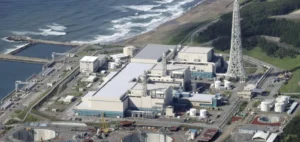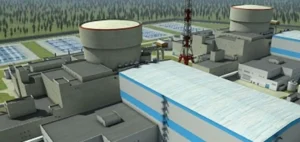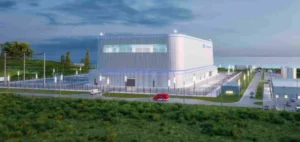The financial resources of IRSN, the technical expert in nuclear safety, need to be rethought and increased at a time when France is revitalizing this energy source, according to a report by the Senate Finance Committee unveiled on Thursday.
The capacities of the Institut de Radioprotection et de Sûreté Nucléaire (IRSN), the public body responsible for expertise and research into nuclear safety, must “imperatively be commensurate with the challenges ahead”, says Senator Jean-François Rapin, LR senator for Pas-de-Calais and author of the report.
Especially since, he notes, the Institute’s revenue dynamic “has been on a downward trend for over a decade”, against a backdrop of declining interest in nuclear power: resources have gradually fallen from 301 million euros in 2012 to 271 million euros in 2022, “a drop of almost 10% in 10 years”, barely halted in 2023 by a “small budget boost” of 8.7 million euros for personnel, taking inflation into account.
With the government’s plan to revitalize the atom, there will be no shortage of expert appraisal work: “extending the life of existing power plants, setting up future reactors”, etc. EPR2In particular, we’re working on a number of new projects, such as the Fessenheim power plant, the Cigéo waste storage project, the emergence of small modular reactors, and the adaptation of power plants to climate change.
As a result, “the Special Rapporteur considers that it will be necessary, at least over the next two years, to increase IRSN’s budgetary resources by 20 million euros a year”, with a reassessment in two years’ time. Highlighting the “scissor” effect of this drop in resources on the budget balance, the report underlines the “weakening of the Institute’s capacity to cope with major investments”, at a time when some scientific equipment is ageing.
It also advocates the “sanctuarization” of resources devoted to research, which in 2010 accounted for 48.7% of expenditure but has fallen by almost 10 points, absorbing “the majority” of the reduction in resources. Another area of concern is the Institute’s recruitment difficulties, which, in a tight job market, suffer from “very strong competition from the private sector” in terms of remuneration.
Here, the report echoes a concern expressed by the unions in February, when the government was attempting to reorganize nuclear safety by merging IRSN with the Autorité de sûreté nucléaire (ASN), the civil nuclear watchdog. In the end, this controversial fusion project was not included in the nuclear acceleration bill, but the executive has not given up on it, and is now awaiting a report on the subject from the parliamentary office for scientific choices (Opecst).






















